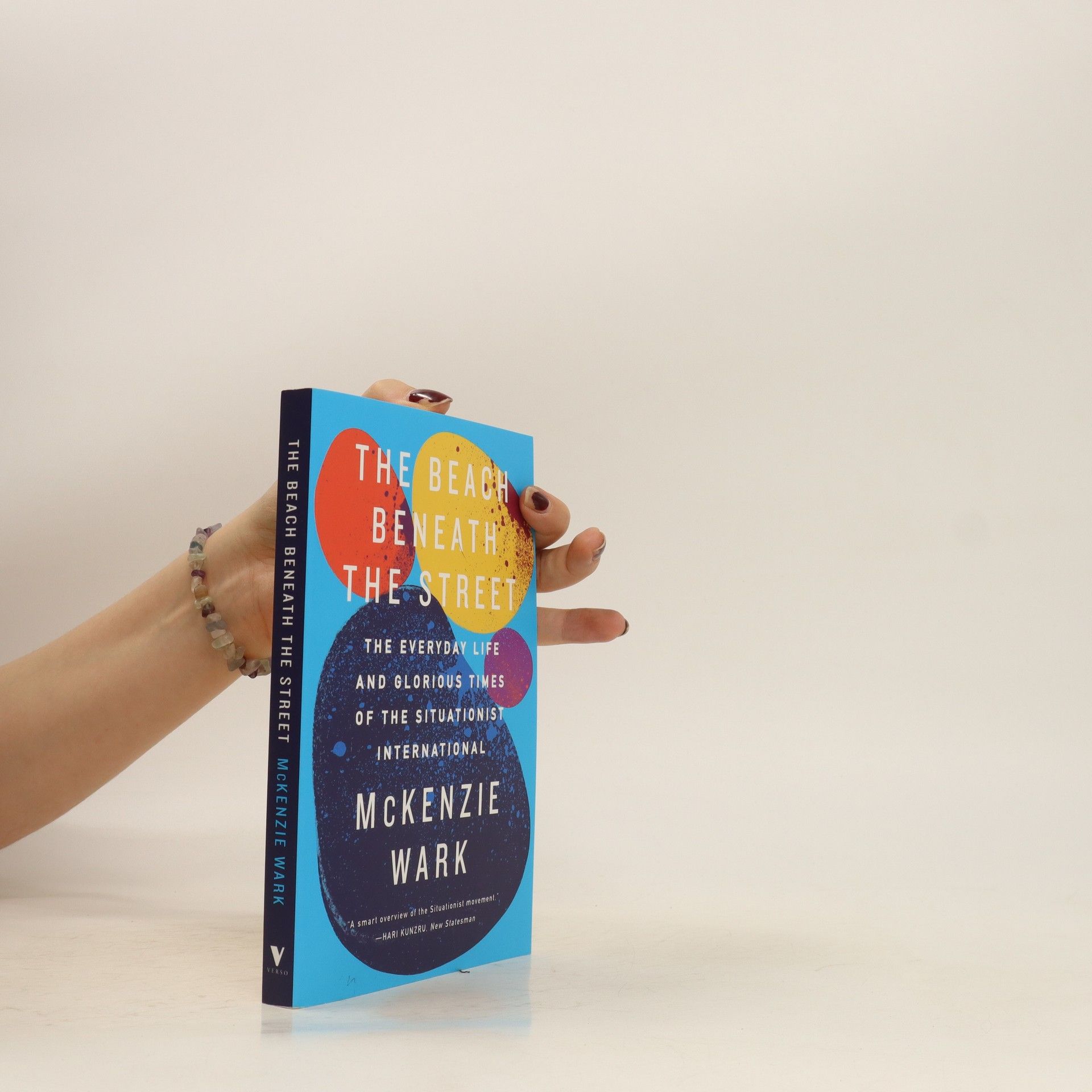A breathtaking memoir of transition, history, art, and memory
McKenzie Wark Book order (chronological)
McKenzie Wark is an author who explores the frontiers of contemporary culture and theory. Her work delves into the digital age, art, and politics, offering incisive perspectives on how our understanding of the world is shaped. Through her writing, she challenges readers to reconsider the relationship between technology, art, and society. Wark provides a critical analysis that resonates in an era of constant change.







McKenzie Wark takes readers into the undisclosed locations of New York's thriving queer rave scene, showing how raving to techno is an art and technique at which queer and trans bodies might be particularly adept, but which is for anyone who lets the beat seduce them.
Du hast es mir sehr angetan
E-Mails 1995/96
Auf einem Trip nach Australien lernt die Autorin Kathy Acker 1995 McKenzie Wark kennen. Gerade ist Warks Buch Virtual Geography erschienen, das das Leben mit globalen Medien erforscht. Die beiden verbringen intensive Tage und Nächte miteinander, denen nach Ackers Rückkehr in die USA ein zweiwöchiger E-Mail-Austausch in Hochfrequenz folgt. Mehrmals am Tag schreiben sie sich in einen Rausch, in dem sich die elektronischen Nachrichten überkreuzen und alles zum Mittel ihres transpazifischen Werbens werden kann: Alfred Hitchcock und Stofftiere, Georges Bataille und Elvis Presley, die Simpsons, Phänomenologie, Akte X, Elfriede Jelinek und das I Ging . Die Texte surren vor Sex, Politik und Kultur, Einsichten und Albernheit, über die sich intime Nähe und schmerzhaftes Missverstehen einstellen, bevor der Austausch plötzlich abbricht. Eine Liebesgeschichte in Latenz an der Schwelle zum neuen Jahrtausend, geschrieben von und für Queers, Nerds und Buchverrückte.
Das Kapital ist tot. Kommt jetzt etwas Schlimmeres?
Kritik einer politischen Ökonomie der Information
It's not capitalism, it's not neoliberalism-what if it's something worse?
McKenzie Wark combines an autobiographical account of her relationship with Kathy Acker with her transgender reading of Acker's writing to outline Acker's philosophy of embodiment and its importance for theorizing the trans experience.
Sensoria
- 304 pages
- 11 hours of reading
Design, Politics, the Environment: a survey of the key thinkers and ideas that are rebuilding the world in the shadow of the anthropocene
Reverse Cowgirl
- 200 pages
- 7 hours of reading
McKenzie Wark invents a new genre for another gender: not a memoir but an auto-ethnography of the opacity of the self.
Radical Thinkers: The World, the Flesh and the Devil
An Enquiry into the Future of the Three Enemies of the Rational Soul
- 112 pages
- 4 hours of reading
The most brilliant attempt at scientific prediction ever made. -Arthur C. Clarke
»Vielleicht brauchen wir eine neue kritische Theorie. Oder eine neu-alte, denn wie sich herausstellt, gab es bereits einmal eine kraftvolle und originelle Denkströmung, die in einem früheren, gescheiterten Versuch, die Vorgeschichte – die Zeit vor dem Anthropozän – zu beenden, beinahe ausgelöscht worden wäre.« Im Rückgriff auf die Ideengeschichte des 20. Jahrhunderts, insbesondere auf Alexander Bogdanov und Andrej Platonow, versucht McKenzie Wark in diesem radikalen Großessay die Grundlegung einer Theorie für das Anthropozän. Er fordert dabei einen alternativen – und keinen spekulativen – Realismus. Einen Realismus, der für plurale, sich mit anderen Geschichten befassende Narrative offen ist. Im Schatten der Kohlenstoffbefreiungsfront ruft er dazu auf, eine neue Poetik und Technik zur Wissensorganisation zu erschaffen, und wagt es, die Misere unserer Zeit neu zu denken.



